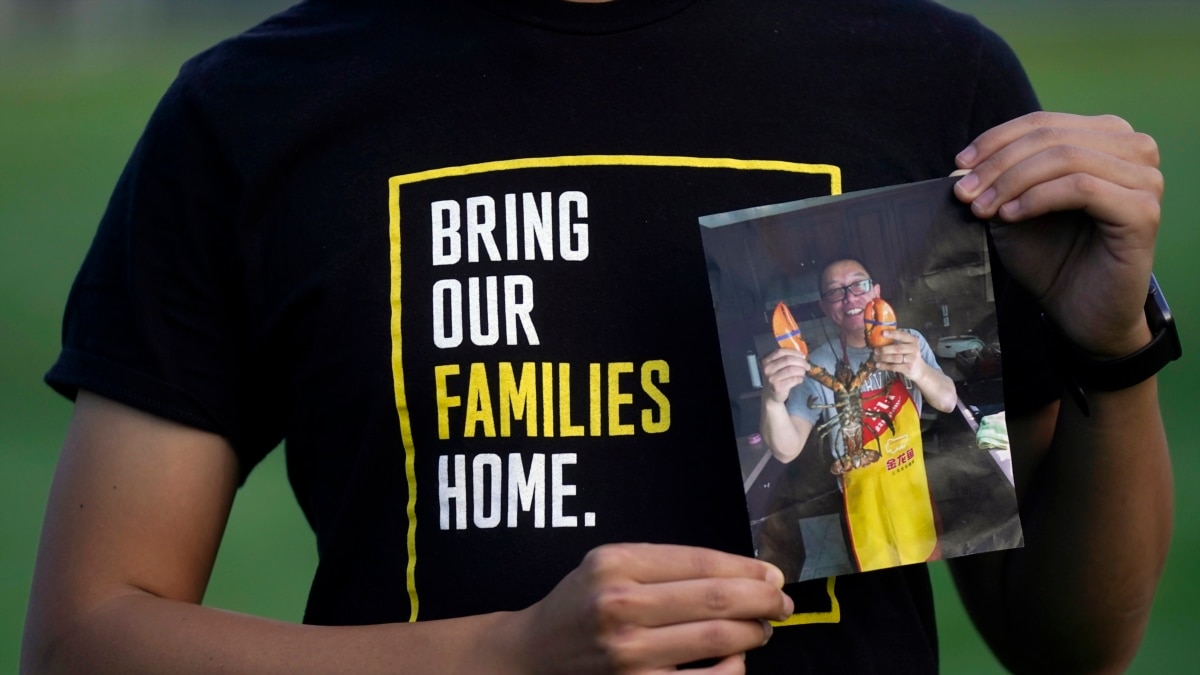Unless someone is actually spying for the US or similar – and thus, weren’t actually wrongfully seized – I really think that offering carrots for hostage demands is just asking for more Americans to be seized. Sure, their families want this, because their top priority is going to be the person in question…but it creates an incentive for countries to grab Americans when they want concessions from the US, which screws over other people who won’t have a direct say, won’t even know the impact on them yet. I don’t think that that’s a wise route to head down.
If someone is legitimately wrongfully-seized, particularly if it’s specifically because they were American or as some sort of aim of obtaining leverage with the US and there’s some reason to believe that they couldn’t have known that they were putting themselves in a risky situation (e.g. a revolution unexpectedly breaks out in a country), then I’m fine for pressuring for release using negative incentives, applying the stick. That avoids creating a misincentive for a country to seize Americans. But not to provide positive incentives.
There are a number of other cases that none of the above addresses.
People who are arrested because they slammed into laws that don’t work the same way abroad as in the US
If you go to Country X and get arrested because you’re doing something that would have been legal in the US but isn’t in Country X, that’s not the US’s responsibility to bail you out. You accepted living under Country X’s laws when you entered that country. If you aren’t willing to do that, don’t go to Country X.
A variant on this is people who slam into laws with punishments that are a lot more-severe than they are in the US, where someone feels that it’s unjust that they should be subject to them.
American citizens don’t carry a “halo” of American law with them. Nor is the US a court of appeals for justice systems abroad. Entering a country is a serious matter – if you aren’t willing to live with a country’s law and justice system, don’t enter it.
People who go to countries when they should know that there are risks associated with doing so due to Department of State advisories
The Department of State puts information up about international travel. If the Department of State has a “do not travel” advisory up, and you do it anyway and don’t like the result, my take is that the US has a very limited obligation to bail you out. Right now, the Department of State says “do not go to North Korea”. If you are determined to go to North Korea anyway, and Kim Jong Un decides that a neat tactic to try to get more food is to seize Americans and swap each for a trainload of food and decides to experiment with that, I don’t think that the US has a lot of obligation to come haul you out of the fire. The federal government already provided you with the information to make a safe move; you didn’t want to use it. If you want to disregard that information, okay, but then you bear the consequences.
This is an example. It’s pretty damned explicit. If you decide to enter North Korea despite that and get into trouble, you can’t expect the cavalry to come:
In particular:
North Korea - Level 4: Do Not Travel
Do not travel to North Korea due to the continuing serious risk of arrest and long-term detention of U.S. nationals. Exercise increased caution to North Korea due to the critical threat of wrongful detention.
The U.S. government is unable to provide emergency services to U.S. citizens in North Korea as it does not have diplomatic or consular relations with North Korea. Sweden serves as the protecting power for the United States in North Korea, providing limited emergency services. The North Korean government routinely delays or denies Swedish officials access to detained U.S. citizens.
Voice of America - News Source Context (Click to view Full Report)
Information for Voice of America:
MBFC: Least Biased - Credibility: High - Factual Reporting: High - United States of America
Wikipedia about this sourceSearch topics on Ground.News



